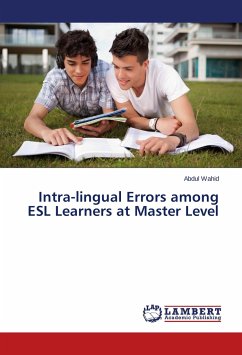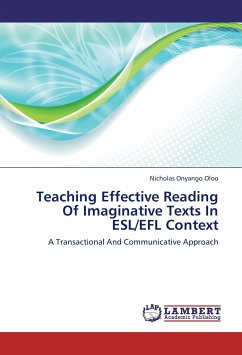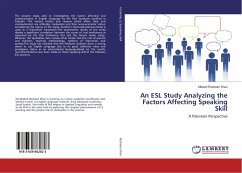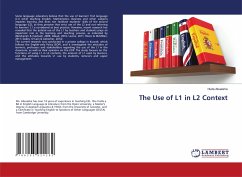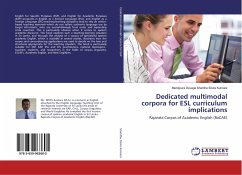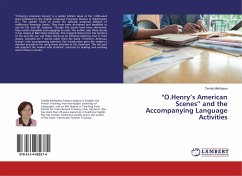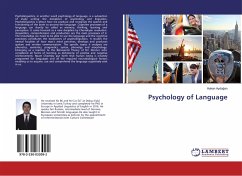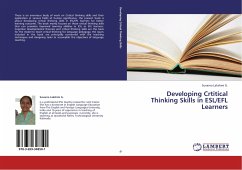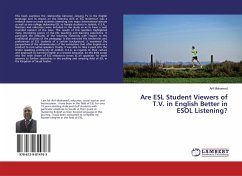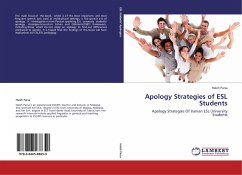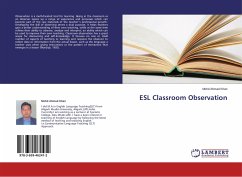
ESL Classroom Observation
Versandkostenfrei!
Versandfertig in 6-10 Tagen
27,99 €
inkl. MwSt.

PAYBACK Punkte
14 °P sammeln!
Observation is a multi-faceted tool for learning. Being in the classroom as an observer opens up a range of experience and processes which can become part of the raw materials of the teacher s professional growth. Developing the skill of observing serves a dual purpose, it helps teachers gain a better understanding of their own teaching, while at the same time refines their ability to observe, analyze and interpret; an ability which can be used to improve their own teaching. Classroom observation has a great scope for discovering and self-knowledge. It focuses on one or small number of aspects...
Observation is a multi-faceted tool for learning. Being in the classroom as an observer opens up a range of experience and processes which can become part of the raw materials of the teacher s professional growth. Developing the skill of observing serves a dual purpose, it helps teachers gain a better understanding of their own teaching, while at the same time refines their ability to observe, analyze and interpret; an ability which can be used to improve their own teaching. Classroom observation has a great scope for discovering and self-knowledge. It focuses on one or small number of aspects of teaching or learning and requires the observer to collect data or information from the actual lesson, such as the language a teacher uses when giving instructions or the pattern of interaction that emerges in a lesson (Wanjryb, 1992).



